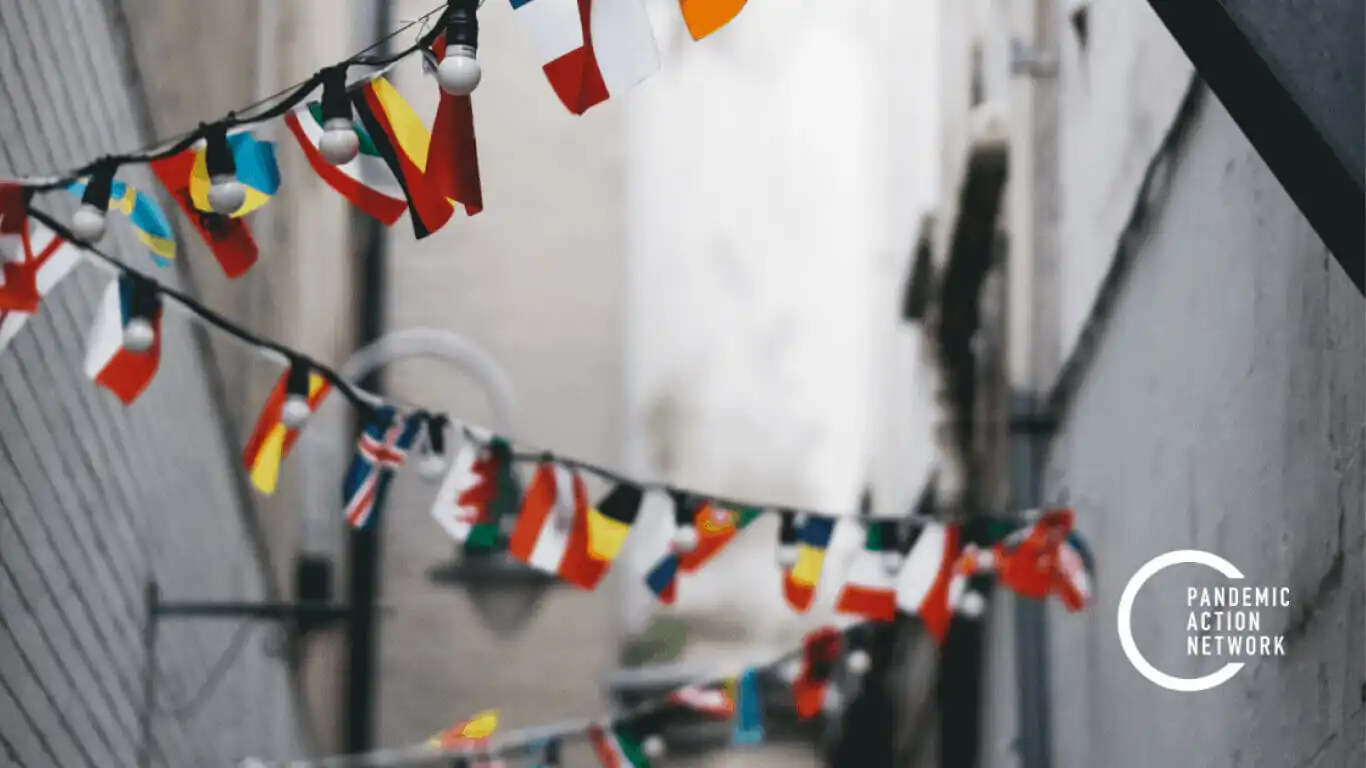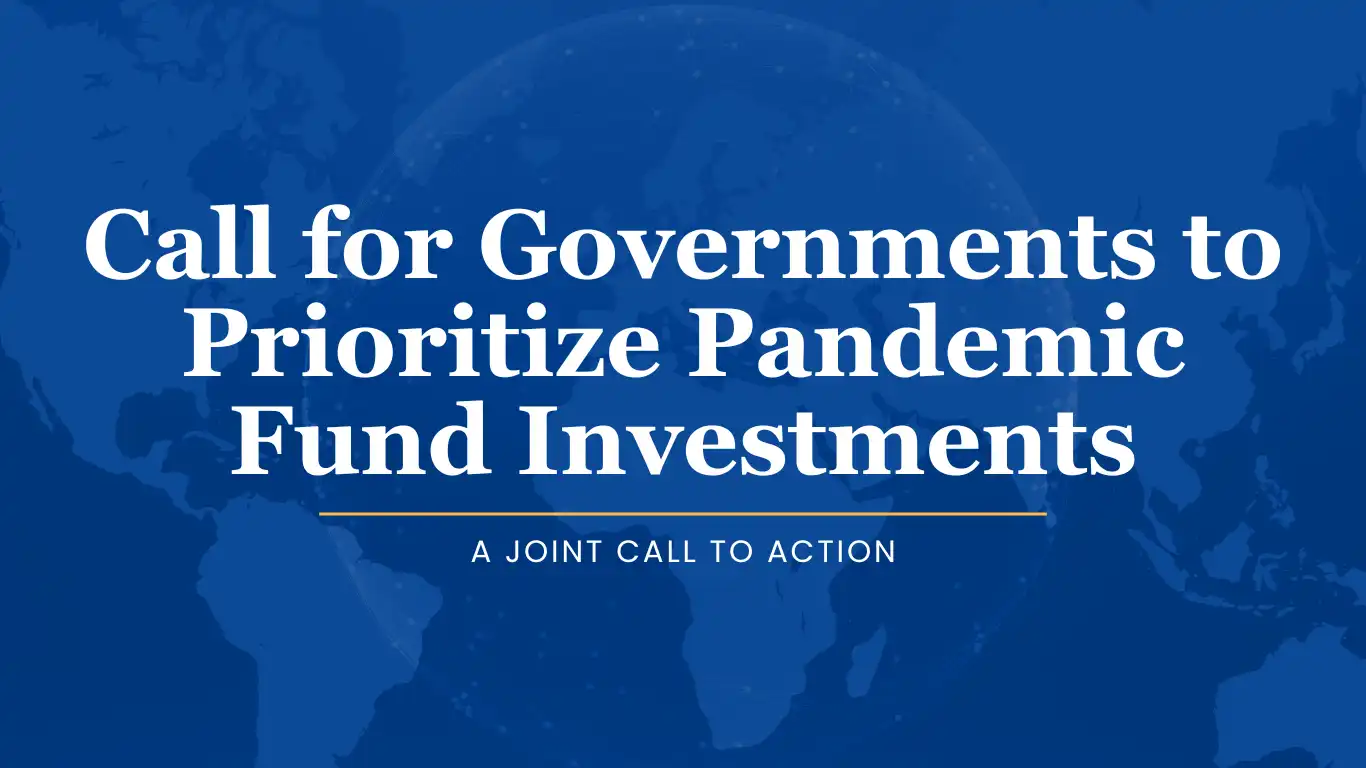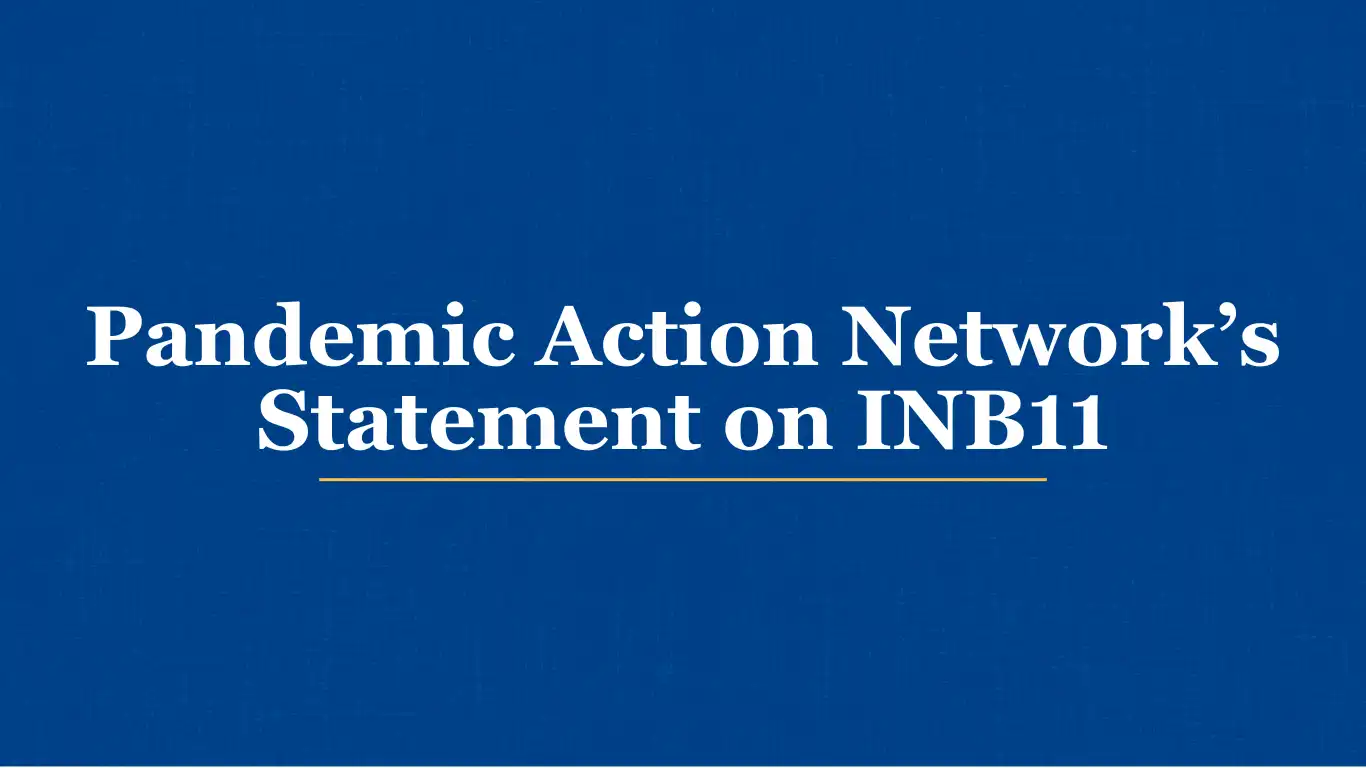This was the week of partnerships. On Wednesday 30 September, organizations came together in different ways to help end the pandemic. The WHO, FIND, the Bill & Melinda Gates Foundation, Wellcome, CEPI, GAVI, the Global Fund and UNITAID gave the final lift-off to the Action for COVID-19 Tools Accelerator (ACT-A) which needs to raise $38B in total. The ACT-A partnership is providing “an integrated ‘end-to-end’ global solution that targets the root cause of the crisis – severe COVID-19 disease – to accelerate the end of the pandemic”, with the aim of providing diagnostics, therapeutics and vaccines globally and equitably, as well as strengthening health systems so they can deliver these tools and other essential products.
At the ACT-A event, hosted by the UK, South Africa, the WHO and the UN, two more partnerships were announced. The World Bank dug deep from its extraordinary COVID-19 funds to empower lower-middle-income countries to be able to provide their own citizens with COVID vaccines when the time comes. Also, pharma companies and the Gates Foundation announced they are holding themselves publicly accountable to delivering equitable access for the whole world – not just high-income countries. Here’s the detail on what happened at the ACT-A launch:
- Funds were raised towards ACT-A’s $38B target – but we need way more.
With $3B already raised, and a $35B funding gap to fill, $15B of which is urgently needed this year, pledges from the UK (GBP 500M in total, though half of that needs match funding), Canada (CAD 200m) and another EUR100m from Germany were welcome – as was $10m from Sweden – but those contributions only closed the urgent $15B funding gap by $933M. We still have a long way to go. On the positive side, the UK has invested over a billion in total (if we include their match fund) – and may still invest more. We need the other big countries to follow the UK lead. In the US, advocates are pushing for $8B for two key ACT-A agencies, and we will be looking to the G20 to work together and dig deep to fill the gap urgently in the coming weeks, with a close eye on the over $14B amount that still needs to be found in 2020. Much of the money raised so far has been for the COVAX pillar of ACT-A – a global risk-sharing mechanism for pooled procurement and equitable distribution of eventual vaccines for COVID. We need to take care that funds for crucial diagnostics, therapeutics and health systems support and PPE are also raised – we will be looking to donors to fund the ACT-A’s urgent needs based on their detailed economic investment case and costing plan.
- There was a welcome $12bn pledge from the World Bank – but it may not count towards the $35B ACT-A funding gap.
President David Malpass of the World Bank Group pledged a very welcome $12B to help LMICs to purchase their own vaccines. However, it’s not clear yet whether these funds will help close the specific funding gaps of ACT-A for a few reasons. First, ACT-A partners will need to look at whether this money going to individual countries maps against particular procurement needs; second, these funds are more likely to come onstream in 2021; and third, the decision is yet to be fully approved. All that said, even if this is not part of the ACT-A funding effort, giving LMICs the right to bid for their own vaccines is an important step towards equity, and to getting these countries tooled up to fight COVID-19, and is extremely welcome.
- Pharma companies signed up to a new commitment to equity with the Gates Foundation.
Wednesday also saw the launch of a communique signed by the CEOs of 16 pharmaceutical companies and the co-chairs of the Bill & Melinda Gates Foundation, committing to enable affordability for lower-income countries and to support effective and equitable distribution of innovations globally, while ensuring public confidence in those innovations with a commitment to safety.
The communique contains key commitments to deliver vaccines to the developing world. These commitments include:
- The expansion of clinical trials to account for diverse representation including lower-income settings and addressing the specific product characteristics needed in these settings.
- Ensuring timely availability. Delivering these effective innovations to countries around the world for broad distribution as early as possible, no matter their income level.
- Ensuring that products are affordable in lower-income countries.
- Striving for equitable allocation of products and support global mechanisms like COVAX, the vaccine pillar of ACT-A.
Having the pharma industry pushing for equity on the inside of the COVAX partnership, among others, will be vital in helping push countries towards a multilateral, collective response that distributes vaccines. This will ensure that the most lives are saved and the disease is stamped out in the fastest possible way, overriding bilateral approaches that would in fact cause much more economic and human cost by prolonging the pandemic unnecessarily.
The scale and unprecedented nature of these different partnerships involve governments, private sector, health agencies and foundations, among others, and show how the world has scrambled the jets and is learning to work in new innovative ways to try and rid the world of COVID-19, and ensure the cures for this disease do not simply go to the highest bidders.
Now the hard work starts to deliver on this vision. At the Pandemic Action Network, we and many of our partners will be focused on raising the full $38B for the ACT Accelerator over the coming 6 months through our weekly Resource Mobilisation working group, to which all those working on the same objective are welcome. We will also be working assiduously to make sure that the global allocation frameworks deliver tools equitably around the world – so that the delivery of tests, therapies and vaccines, like the disease itself, does not discriminate between rich and poor. We will provide strong support, and a close eye on the policies and processes to help put wind in the backs of all those who are fighting for an equitable, global response to this crisis, wherever they sit within or outside these partnerships.
Together, we’ll succeed – because we must.
If you are advocating to help raise $38B for ACT-A, please contact [email protected] or [email protected] for more details on our Resource Mobilisation working group or any other aspects of our work.



